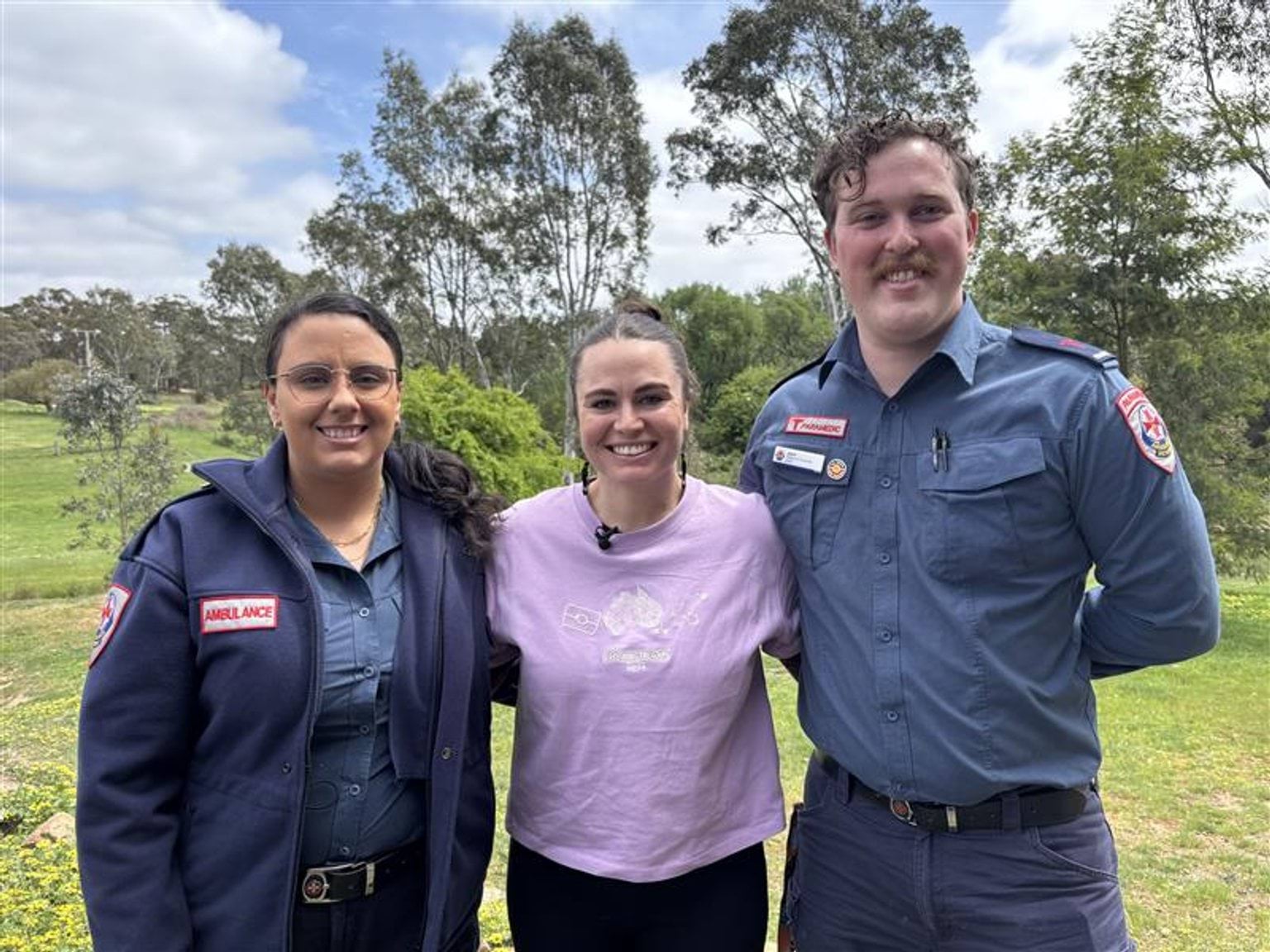- Published:
- Monday 27 October 2025 at 7:57 am

Sissy Austin, a proud Gunditjmara, Keerray Woorroong and Djap Wurrung woman, has transformed trauma into a national movement of healing.
Speaking from Djaara Country, she shared her deeply moving story of survival, resilience and advocacy following an alleged assault while running in the Lal Lal State Forest in 2023.
Despite sustaining a serious head injury, Sissy managed to make the 4km journey back to her car and call Ambulance Victoria for help.
In a moment that would become pivotal in her healing journey, she asked paramedics Jack Shaw and Jordan Douglas if they knew whose Country they were on.
Their immediate and respectful acknowledgment of Wadawurrung Country gave her a sense of cultural safety and comfort.
“That moment was incredibly healing and comforting for me,” Sissy said. “When Jack and Jordan acknowledged the Country we were on, I knew I was safe in their care.”
Sissy faced a long road to recovery, but she found strength through her love of running. She joined the Indigenous Marathon Project and completed her first-ever marathon in New York, just six months after the assault.
In February 2025, Sissy launched Take Back the Track, a national movement and annual day of recognition for women and gender-diverse runners who have experienced violence.
Her advocacy earned her the NAIDOC Sports Person of the Year 2025 and a platform to speak at Federation Square, where she reunited with Ambulance Victoria paramedics in the crowd.
“It’s been inspiring to see Sissy’s strength and how she’s empowering others through Take Back the Track. I’m committed to continuing culturally safe care, trying to make things a little easier on the worst days of people’s lives,” Jack said.
Sissy’s experience highlights the powerful impact of culturally safe care and the importance of acknowledging Country in moments of crisis.
Building on lessons from stories like hers, Ambulance Victoria recently announced updates to its patient experience; improving the way the organisation delivers culturally safe care for Aboriginal and Torres Strait Islander Victorians.
Since September 2025, it is standard practice for paramedics in Victoria to ask patients, where practical, if they identify as Aboriginal and/or Torres Strait Islander and record this information in their Patient Care Record.
This step allows paramedics to identify potential vulnerabilities and health-related risk factors associated with cultural background, enabling more appropriate healthcare options and referrals and improving health outcomes.
Aboriginal and Torres Strait Islander Program Lead and Paramedic at Ambulance Victoria, Michelle Crilly said this is a small step towards ensuring patients receive the best care possible.
“Asking the Question to identify a patient’s Aboriginal and or Torres Strait Islander status ensures that we have a full picture of the patient’s background, allowing us to identify opportunities to improve patient care and deliver culturally safe services.
“When patients are happy to answer a simple question, we can have a big impact on the wider community,” Michelle said.
Ambulance Victoria is committed to working with Aboriginal Community Controlled Health Organisation (ACCHO) to deliver culturally safe care across the state.
In a moment of reflection, Sissy shared that she hopes we start seeing and experiencing positive change.
“I am deeply grateful for the care I received from Ambulance Victoria paramedics on what was one of the worst days of my life. The trip from Lal Lal into Ballarat was a far less daunting one with Jack telling me that he knew he was aware that we were travelling on Wadawurrung Country.
“I hope for a future where we can share more positive stories like the one I had with paramedics Jack and Jordan,” she said.
Updated

